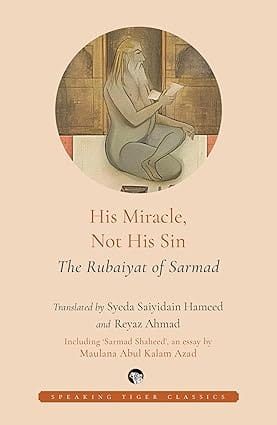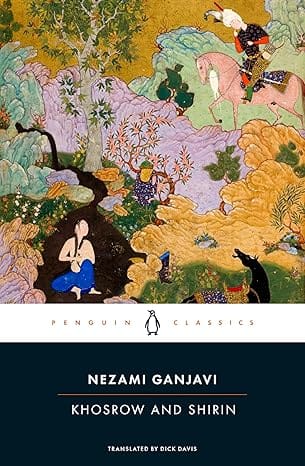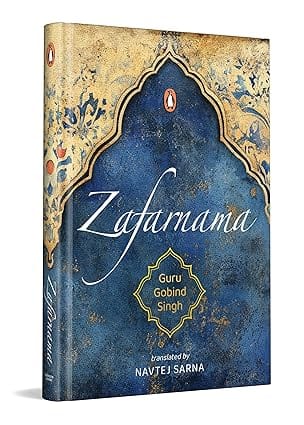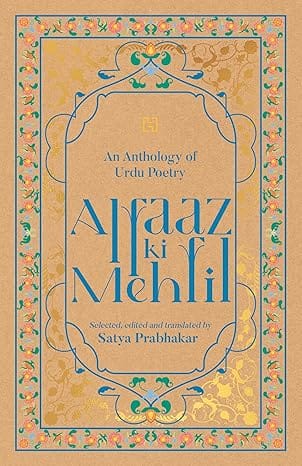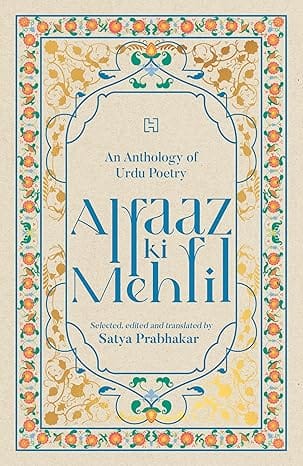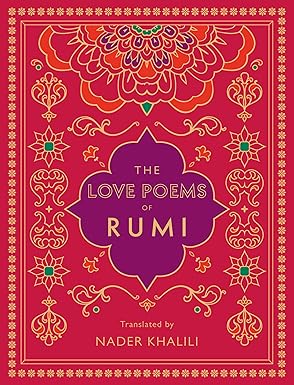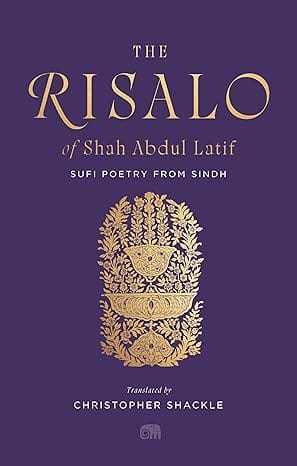- Non-ficton
- Non-ficton
- Contemporary Fiction
- Contemporary Fiction
- Children
- Children
- Comics & Graphic Novels
- Comics & Graphic Novels
- Non-Fiction
- Non-Fiction
- Fiction
- Fiction
Celebrated as the naked ascetic and mad poet, Sarmad, who lived in the seventeenth century, is revered as one the world’s most unorthodox Sufis. Originally from a Jewish trader’s family from the Armenian region of modern-day Iran, Sarmad adopted Islamic mysticism after arriving in India during the Mughal Emperor Shahjehan’s reign. He embraced spirituality entirely and gave up all his worldly possessions—even his clothes. In India, Sarmad fell deeply in love with Abhaichand, a Hindu boy, after hearing him recite poetry at a mehfil. Abhaichand became Sarmad’s disciple, and together the duo preached the Sufi’s spiritual beliefs—the former singing his murshid’s exquisite rubayis (quatrains). Despite his unconventional views, many became Sarmad’s followers, renowned among them, Shahjehan’s son, Prince Dara Shikoh. Even today, devotees flock to Sarmad’s grave in old Delhi, and his rubayis are also read, centuries after the Sufi Pir was beheaded for blasphemy under Aurangzeb’s rule.
This book is a selection of seventy of Sarmad’s finest rubayis that speak against conformist religious dogma and for universal love and surrender to the One Divine. Together, the rubayis constitute a true representation of the Ganga- Jamuni Tehzeeb—the syncretic culture of the Indian subcontinent. Each rubayi appears in three different languages—the original Farsi, an Urdu translation by Balmukund Arsh Malsiyani, a Punjabi-Urdu poet, and an elegant English version by Syeda Hameed and Reyaz Ahmad. Crowning these is a masterful translation of Maulana Abul Kalam Azad’s illuminating biographical essay on Sarmad, which analyses this great Sufi’s liberal ideals and radical mystical thought.
About the Author
Sarmad (1590-1661) was an Armenian tradesman who came to India during the seventeenth century. He became attracted to Tasawwuf and grew into a Sufi saint whose fame spread all over the subcontinent. His rubayis (quatrains) in Persian are outstanding literary classics, which deal with many themes, primarily universal love and acceptance.
Syeda Saiyidain Hameed is a women’s rights activist, educationist and writer. She is a former member of the Planning Commission of India. Her publications include Islamic Seal on India’s Independence: Abul Kalam Azad—A Fresh Look (1998) and Dr Zakir Husain: Teacher Who Became President (2000). In 2007, the Government of India conferred the Padma Shri on Hameed.
Reyaz Ahmad is an independent researcher, author, translator and columnist. He has a Masters in History and a post-graduate diploma in Dalit and Minority Studies. He has also studied Journalism at Jamia Millia Islamia.
- Home
- Fiction
- Poetry Drama & Literary Criticism
- His Miracle, Not His Sin The Rubaiyat Of Sarmad
His Miracle, Not His Sin The Rubaiyat Of Sarmad
SIZE GUIDE
- ISBN: 9789354478284
- Author: Syeda Saiyidain Hameed
- Publisher: Speaking Tiger
- Pages: 192
- Format: Paperback
Book Description
Celebrated as the naked ascetic and mad poet, Sarmad, who lived in the seventeenth century, is revered as one the world’s most unorthodox Sufis. Originally from a Jewish trader’s family from the Armenian region of modern-day Iran, Sarmad adopted Islamic mysticism after arriving in India during the Mughal Emperor Shahjehan’s reign. He embraced spirituality entirely and gave up all his worldly possessions—even his clothes. In India, Sarmad fell deeply in love with Abhaichand, a Hindu boy, after hearing him recite poetry at a mehfil. Abhaichand became Sarmad’s disciple, and together the duo preached the Sufi’s spiritual beliefs—the former singing his murshid’s exquisite rubayis (quatrains). Despite his unconventional views, many became Sarmad’s followers, renowned among them, Shahjehan’s son, Prince Dara Shikoh. Even today, devotees flock to Sarmad’s grave in old Delhi, and his rubayis are also read, centuries after the Sufi Pir was beheaded for blasphemy under Aurangzeb’s rule.
This book is a selection of seventy of Sarmad’s finest rubayis that speak against conformist religious dogma and for universal love and surrender to the One Divine. Together, the rubayis constitute a true representation of the Ganga- Jamuni Tehzeeb—the syncretic culture of the Indian subcontinent. Each rubayi appears in three different languages—the original Farsi, an Urdu translation by Balmukund Arsh Malsiyani, a Punjabi-Urdu poet, and an elegant English version by Syeda Hameed and Reyaz Ahmad. Crowning these is a masterful translation of Maulana Abul Kalam Azad’s illuminating biographical essay on Sarmad, which analyses this great Sufi’s liberal ideals and radical mystical thought.
About the Author
Sarmad (1590-1661) was an Armenian tradesman who came to India during the seventeenth century. He became attracted to Tasawwuf and grew into a Sufi saint whose fame spread all over the subcontinent. His rubayis (quatrains) in Persian are outstanding literary classics, which deal with many themes, primarily universal love and acceptance.
Syeda Saiyidain Hameed is a women’s rights activist, educationist and writer. She is a former member of the Planning Commission of India. Her publications include Islamic Seal on India’s Independence: Abul Kalam Azad—A Fresh Look (1998) and Dr Zakir Husain: Teacher Who Became President (2000). In 2007, the Government of India conferred the Padma Shri on Hameed.
Reyaz Ahmad is an independent researcher, author, translator and columnist. He has a Masters in History and a post-graduate diploma in Dalit and Minority Studies. He has also studied Journalism at Jamia Millia Islamia.
User reviews
NEWSLETTER
Subscribe to get Email Updates!
Thanks for subscribing.
Your response has been recorded.

India's Iconic & Independent Book Store offering a vast selection of books across a variety of genres Since 1978.
"We Believe In The Power of Books" Our mission is to make books accessible to everyone, and to cultivate a culture of reading and learning. We strive to provide a wide range of books, from classic literature, sci-fi and fantasy, to graphic novels, biographies and self-help books, so that everyone can find something to read.
Whether you’re looking for your next great read, a gift for someone special, or just browsing, Midland is here to make your book-buying experience easy and enjoyable.
We are shipping pan India and across the world.
For Bulk Order / Corporate Gifting
 +91 9818282497 |
+91 9818282497 |  [email protected]
[email protected]
Click To Know More
INFORMATION
QUICK LINKS
ADDRESS
Shop No.20, Aurobindo Palace Market, Near Church, New Delhi

